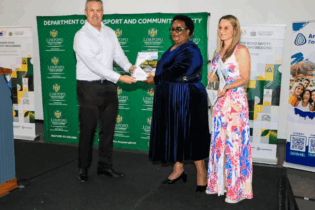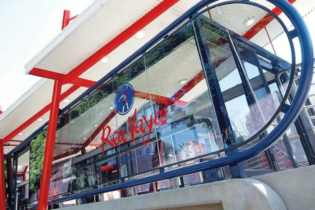Freight forwarders in East Africa will soon be able to transact business across the region after the introduction of a training program aimed at harmonizing their practicing certificates.
The Federation of East African Freight Forwarders’ Associations (FEAFFA) in collaboration with the region’s revenue authorities has developed a regional training programme dubbed ‘East Africa Customs and Freight Forwarding Certificate (EACFFPC). The program is being implemented with the support of TradeMark East Africa under the stewardship of the Curriculum Implementation Committee (CIC), a joint committee of FEAFFA and the regional Revenue Authorities. Speaking to the East African Business Week during the unveiling of the new curriculum in Kampala recently, Mr. John Bosco Rugasira, the President of FEAFFA and also head of the Rwanda Association, the programme will enable agents access the necessary training that will enable them transact business across the region. “This program is recognized not only in the East African region but also beyond. Agents who acquire this certificate will be able to work in any country that recognizes this certificate”, Rugasira said. He added that the national associations need to sell the program to their members so that many can enroll so as to promote better service delivery in the region. He said that much as the programme had been in existence, it didn’t have a curriculum but rather operated on a syllabus. “The next step will be to translate the documents into French and train more trainers so as to reach out to as many agents as possible. We have started this program at a certificate level but in the near future we hope to introduce diploma, degree and even masters, for now though that is the plan,” Rugasira said. The six month long certificate is however, meant only for persons already involved in the freight forwarding industry.Ms Pauline Ilwanu, a practicing Declarant at Spedag one of the pioneer students when the first batch of agents enrolled in April 2011, said that clearing agents would get invaluable knowledge that would enable them to greatly reduce transit times and give them a competitive edge in the region.
“As clearing agents, we at times have no idea what we are talking about. This program will enable us reduce our transit times because we know what is required of us. Since the program is recognized by the EAC partner states and as we move towards the federation (EAC), I believe those of us who have enrolled in this program will have a competitive edge over the others,” Ilwanu said. Ms. Allen Kagina, the Commissioner General of Uganda Revenue Authority (URA) who was the chief guest at the function said that the authority was re-engineering the way they operated so as to reduce friction between them and clearing agents. “Over the last few years we have been transforming our operations away from control and enforcement to offering a service; looking at tax payers as clients and clearing agents as our partners,” Kagina said. According to TradeMark East Africa’s Director, Silas Kanamugire, the freight logistics industry in the region has largely been characterized by poor business practices due to inadequate skills and limited use of modern technologies. “Our aim is to therefore reduce the time and cost involved in movement across the East African corridors by raising the professional standards of clearing agents since they are the ones mandated to clear cargo by the EAC Customs Management Act,” he said. Source: allAfrica.com





